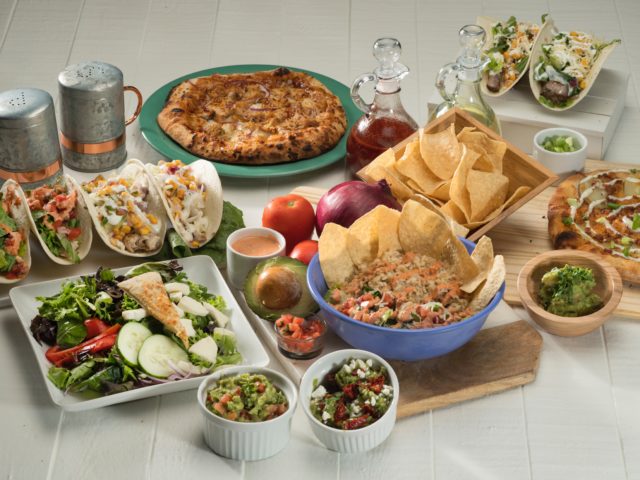Eating is a natural part of digestive rhythms set in your genes, largely controlled by two hormones, leptin and ghrelin. When these hormones are in balance, the alternation between being hungry and being satisfied is also in balance. But these simple facts about the physiology are beside the point when weight becomes a problem.
A Wellness-System Approach to Weight Control
The real problem with weight issues is holistic, involving a person’s entire lifestyle. A better approach to weight control is a wellness-system approach, which looks at everything that goes into being overweight: eating habits, sleep, self-image, core beliefs, exercise, and more. These elements are rarely isolated. Instead, they organize themselves into feedback loops. Like a train running around a circular track, letting passengers off and on at each stop, a feedback loop has inputs and outputs.
If much of your daily input is positive, you are creating mostly positive experiences. If your daily input is negative, the reverse is true. For anyone who has struggled with weight gain, it’s almost certainly true that there is too much negative input on a daily basis. Even the simple pleasure of eating can become part of the negativity, because mentally and emotionally, food has become part of a larger problem.
These feedback loops exist so that you can cope with life and hopefully thrive. Take one element—good sleep. The most basic function of sleep is to revive you when you’re tired and supply mental alertness when you wake up in the morning. But sleep can be thrown out of balance by all kinds of things: anxiety, pain, excessive noise, mental restlessness, habitual insomnia, night shifts at work, and so on. Far from being a simple mechanism, sleep adapts itself to a person’s lifestyle, and even though there is negative input, such as being too anxious to fall asleep, the body-mind will find a way to cope. Even the worst insomnia is marked by periods of sleep during the night.
Positive Coping Mechanisms
If you look at the coping mechanisms that make life positive, they aren’t a mystery. Here are the main ones that need to be reinforced every day:
- Good self-image
- Sense of purpose and meaning
- Contact with friends and family
- Giving and receiving love
- Good sleep
- Physical activity
- Alone time and quiet time
- Play
- Social support systems
- Absence of pain and discomfort
- Low stress levels
- Absence of anxiety and depression.
Coping with Weight Is Not About Diet
Although the list could also include “a nourishing whole foods diet,” let’s leave food out for the moment, because instead of attending to all of these positive reinforcements, people who struggle with weight are asking food to do too much of the work. For example, it becomes a surrogate for a good self-image or a quick fix for anxiety.
To cope with weight doesn’t come down to anything about diet; if it did, dieting would work. But only about 2 percent of dieters manage to lose at least five lbs. and keep it off for two years. Naturally, weight is much harder to control if a person indulges in a fatty, sugary diet with lots of snacking and fast food. None of that counts as healthy eating. But asking someone to give up the foods they feel compelled to eat is the same as saying, “Stop being compulsive.” If we could obey such an instruction, we’d all be at our ideal weight.
Looking from a wellness-system perspective, coping with weight means coping with how your entire life is going. Weight will come off and stay off when the other input in your daily life is so satisfying that food no longer looms as the first and foremost coping mechanism you rely upon. Overeating is a habit, no doubt, and habits stick around when they serve a purpose, however misguided. If you fulfill the purpose in a better way, the need for the habit decreases and in time goes away.
I advise taking a wellness-system look at yourself, with the intention of fulfilling your real needs in life:
- purpose
- meaning
- creativity
- renewal
- love
- self-worth
- other positive elements on the list above
When you build a self that is life-enhancing rather than self-defeating, all kinds of problems decrease and vanish.
How to Add Positivity into Your Life
So, to go back to the image of a train circling the track, picking up and letting off passengers, you can start today by adding a little positive input and letting go of a little negative input. Your motivation must be positive on both sides. Whatever you choose to add or subtract, the choice must feel good. Willpower, self-discipline, being down on yourself, guilt-tripping, and denial don’t feel good, which is why the best laid plans of dieters always go astray. They are trying to force a change when the change doesn’t feel good. The inevitable result is a return to old, comforting habits, even when those habits have very little positivity left in them.
- Copy the list of positive inputs and put it up in a prominent place.
- Buy a weekly calendar with big spaces to write in.
- When you begin your day, consult the list and write on the calendar three specific things you intend to do that will add fulfillment to your day.
- At the end of the day, check off the ones you accomplished.
Positive input is easy to create. For example, under “Play” you can play a game with a child or a friend or by yourself, whatever brings you pleasure. Or under “contact with friends and family” there are endless choices, beginning with a friendly phone call.
The point is to choose something and follow through. Don’t give a thought to changing your dietary habits unless you feel good about the change, such as having frozen yogurt instead of ice cream or sharing one dessert instead of ordering two. Even fast-food chains now have healthier choices. When you become creative and at the same time maintain your positive input program, you are taking a wellness-system approach to coping with life, and that’s always beneficial.






